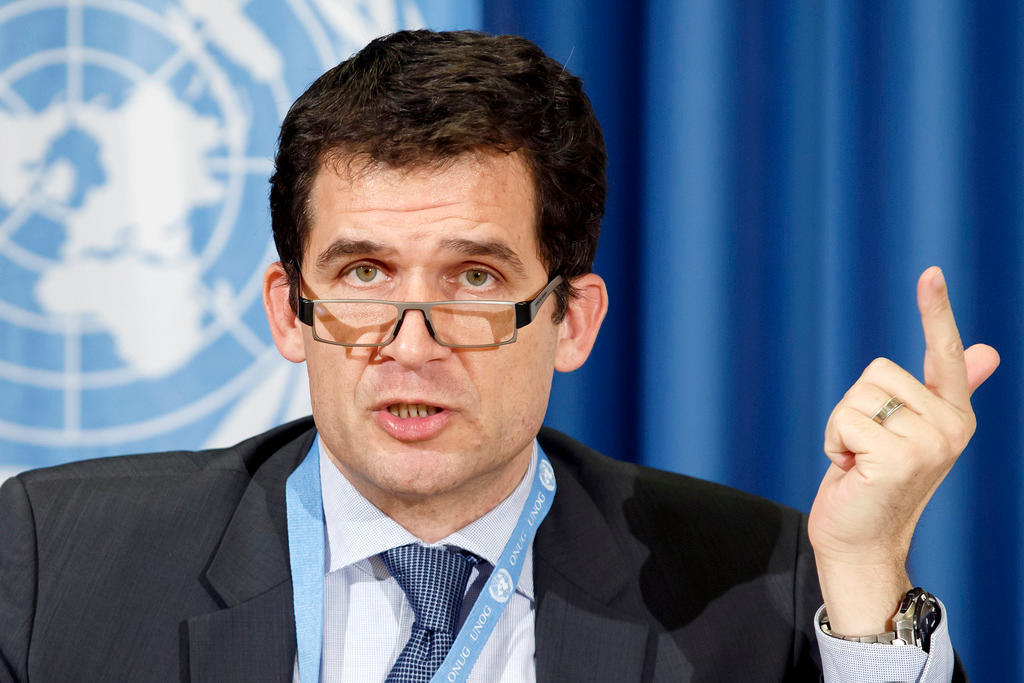
Swiss candidate for top human rights job proposes “constant dialogue”

The biggest task of the next UN High Commissioner for Human Rights is to “restore support for universal human rights standards by the entire international community”, says Nils Melzer of Switzerland, the first person to declare their candidacy for the post of the UN’s most senior human rights official.
Speaking about his priorities if successful, he told swissinfo.ch it would be important to “remind states of the human tragedies of the two World Wars” and “confront them with their responsibilities” whilst avoiding “judgmental personal attacks that risk provoking a breakdown of communication and support”.
The mandate of current UN High Commissioner for Human Rights Zeid Ra’ad Al Hussein expires this summer, and he is not seeking a second term in office. He has been quoted as sayingExternal link that “to do so, in the current geopolitical context, might involve bending a knee in supplication; muting a statement of advocacy; lessening the independence and integrity of my voice”. Zeid Ra’ad has been a strong critic of US President Donald Trump and expressed frustration at the UN’s failure to stem the suffering in Syria.
Melzer announced his candidacy for the post on July 24 on TwitterExternal link, saying he supports civil society calls for more transparency in the selection process and hopes other candidates will do the same. His Twitter post includes his letter to UN Secretary General Antonio Guterres.
“The HC must be strong enough to bear the constant tension between where the world is at in reality and where it should be ideally, and to engage in a constant, relentless dialogue with States in order to convince them that it is in their own interest to take the journey towards fulfilment of all human rights in actual practice,” Melzer told swissinfo.ch.
Asked why he thinks the selection process should be more transparent he says: “This mandate and function must be at the service of humanity as a whole, and so I believe that it is not only the States that are represented in the General Assembly, but also their populations and their civil society that should be involved and consulted.”
MelzerExternal link, a human rights lawyer, is currently the UN Special Rapporteur on TortureExternal link.
Although no other candidates have yet come forward publicly, several other names have reportedly been circulating, including those of former Chilean President Michelle Bachelet, former UNESCO Director-General Irina Bokova, Argentinian former President of the International Criminal Court Silvia Fernandez de Gurmendi and UN Special Advisor on the Prevention of Genocide Adama Dieng.

In compliance with the JTI standards
More: SWI swissinfo.ch certified by the Journalism Trust Initiative





























You can find an overview of ongoing debates with our journalists here . Please join us!
If you want to start a conversation about a topic raised in this article or want to report factual errors, email us at english@swissinfo.ch.